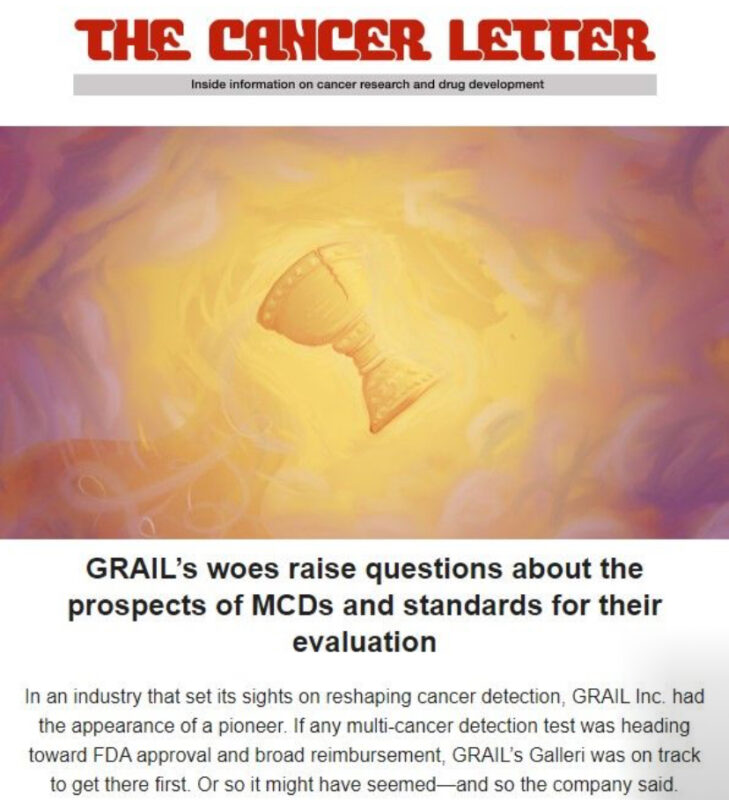Douglas Flora, Executive Medical Director of Oncology Services at St. Elizabeth Healthcare, posted on LinkedIn:
“The Cancer Letter’s reporting on GRAIL’s Galleri test is deeply troubling. It reveals serious issues with the test’s scientific credibility, ethical conduct, and approach to commercialization.
While I still believe in the transformative potential of multi-cancer early detection (MCED), I respect the companies that took a more cautious path, prioritizing thorough validation over rapid market entry. Their patience may now seem justified despite pressure from investors eager for quick returns.
At the core of the controversy is the Galleri test’s accuracy. Despite ambitious claims, the test has shown a troubling pattern of false positives and negatives. False positives can lead to unnecessary follow-up procedures and emotional distress, while false negatives may cause life-threatening delays in treatment.
Additionally, two major studies—the NHS-Galleri and Firefighters Study—failed to demonstrate any apparent reduction in cancer mortality. These trials were initially designed to prove feasibility rather than effectiveness, and their results suggest that Galleri may not be achieving its ultimate goal: saving lives. This lack of conclusive evidence raises fundamental questions about the test’s real-world impact.
GRAIL’s marketing and commercialization strategies have also raised ethical concerns. Critics argue that GRAIL has overstated the benefits of the Galleri test while downplaying significant risks. Marketing materials often emphasize early detection capabilities without sufficiently addressing the risks of overdiagnosis and potential harm.
This approach could be misleading, particularly given the absence of strong data showing reduced mortality. Furthermore, GRAIL’s decision to push Galleri into the market before completing rigorous randomized trials has led to accusations of prioritizing revenue over patient safety.
The situation is further complicated by GRAIL’s acquisition by Illumina, a company that originally spun off GRAIL in 2016. In 2020, Illumina reacquired GRAIL for $7.1 billion, triggering regulatory scrutiny from the FTC and the European Commission. Illumina’s actions have drawn sharp criticism, including allegations of conflicts of interest among board members, inadequate governance, and financial mismanagement.
The Cancer Letter’s reporting underscores significant gaps in scientific rigor, ethical marketing, and responsible leadership. GRAIL’s strategy has raised fundamental questions about balancing rapid commercialization with the need for robust evidence and transparency. MCED technology must be built on a foundation of trustworthy science, clear communication of risks, and an unwavering commitment to patient safety to fulfill its potential.
Credit: The Cancer Letter for their comprehensive reporting.”

More posts featuring Douglas Flora on oncodaily.com
Douglas Flora is the Executive Medical Director of Oncology Services at St. Elizabeth Healthcare, overseeing clinical operations, strategic planning, and the expansion of cancer programs. He is also the co-founder of the Center for Precision Medicine; Genomic Health.
As the Editor-in-Chief of ‘AI in Precision Oncology,’ the first peer-reviewed academic journal dedicated to this field, he plays a pivotal role in advancing research. He is also an active board member of the American Cancer Society and ACCC, where he contributes to advocacy, education, and innovation within the cancer community.


